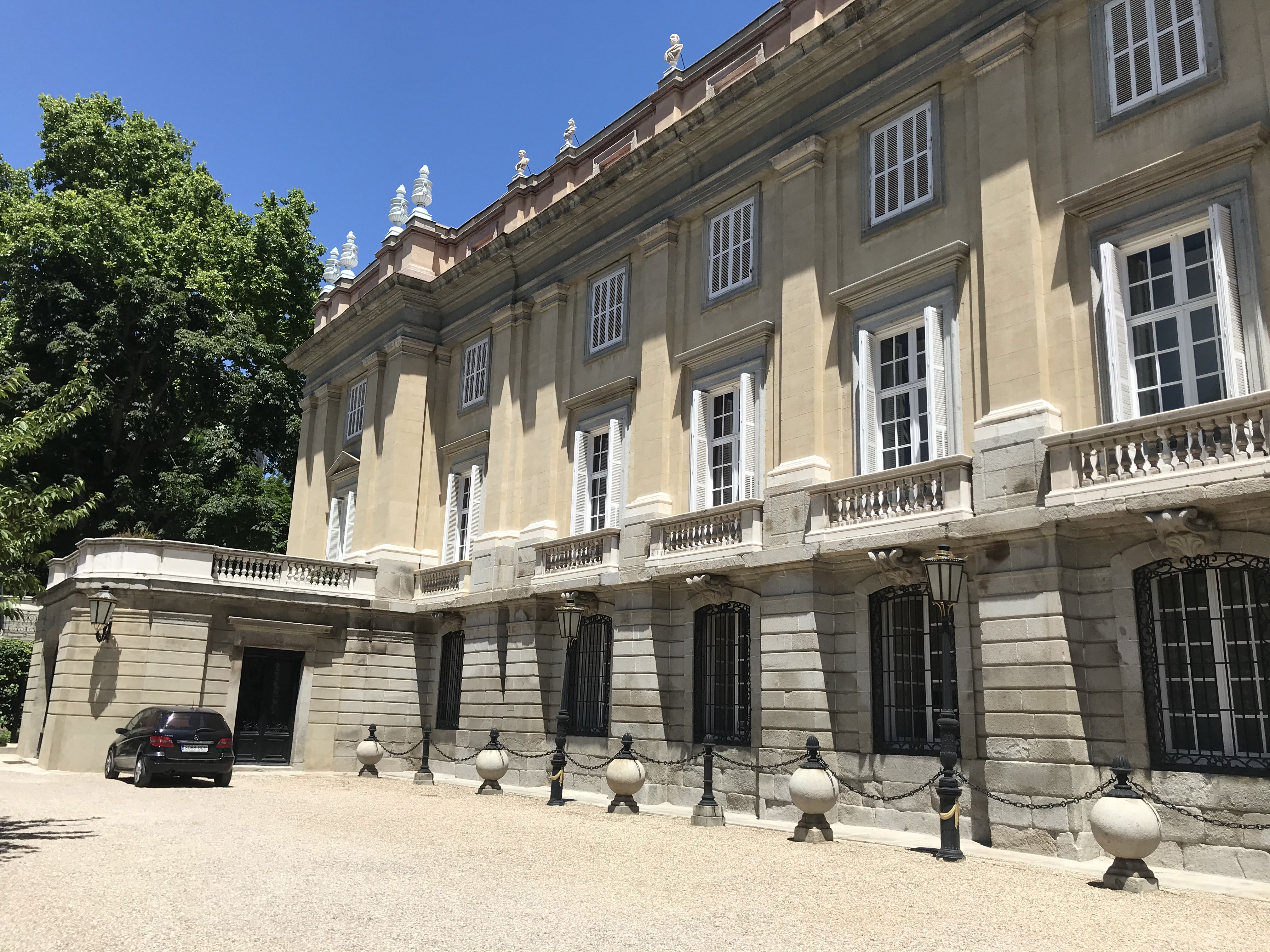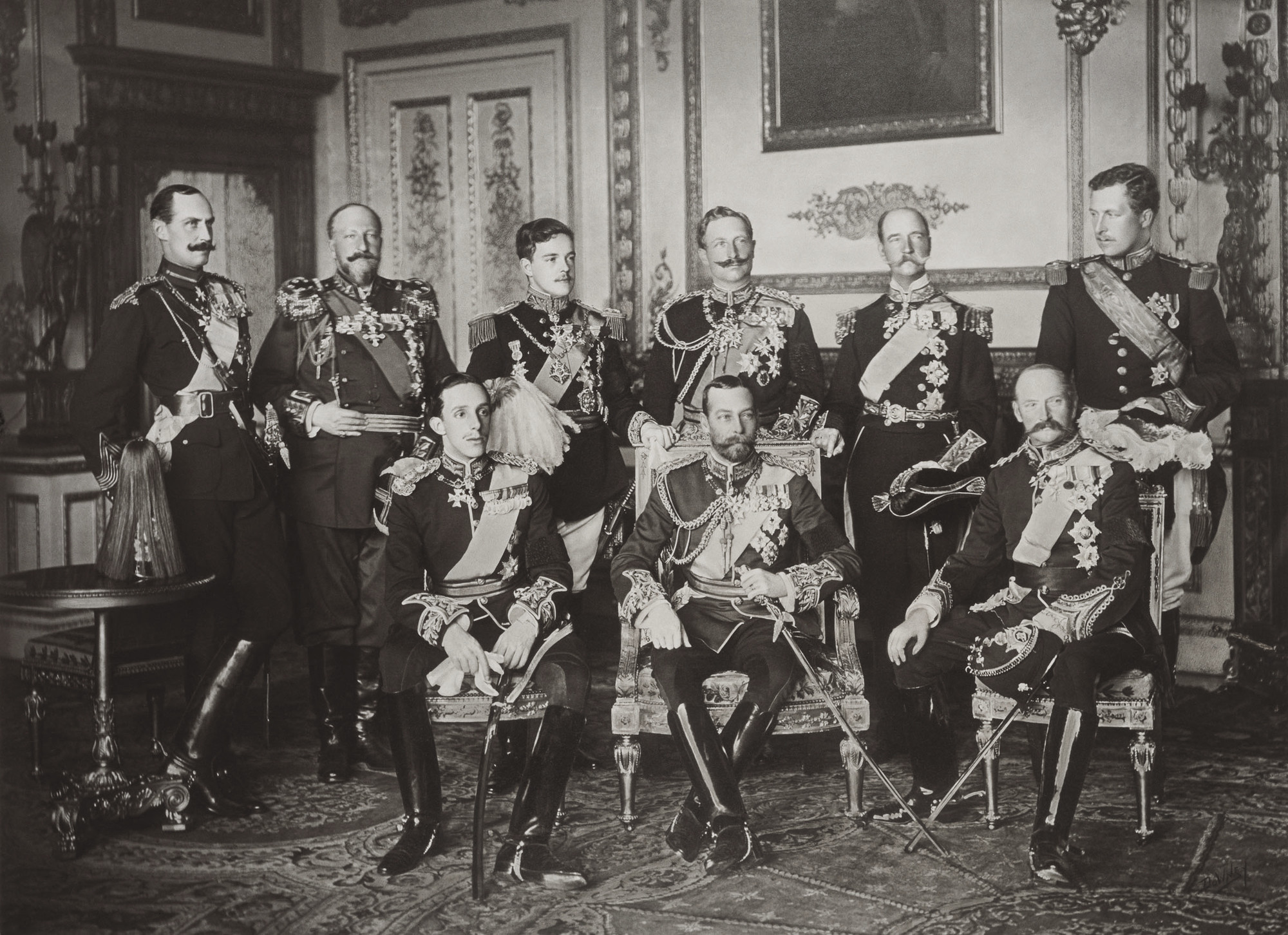|
Royal Household Of Spain
The Royal Household of Spain, officially Household of His Majesty the King (), is the constitutional body whose primary function is to provide aid and support to the King of Spain in the exercise of his royal duties and prerogatives. These include his role as head of state and as commander-in-chief of the Spanish Armed Forces. It functions as the king's executive office. The household is under the direct authority of the King, who personally selects the individuals he chooses to aid him in his constitutional duties. It is a constitutional institution, as laid down in Spain’s constitution of 1978. While the household is part of Spain’s governmental structure, it is not under the control or influence of any other state institution. The household ensures that the King has the independent means to perform all of his state functions. In particular, it is not under the administrative control of the prime minister or the Council of Ministers. The only authority to whom it answers ... [...More Info...] [...Related Items...] OR: [Wikipedia] [Google] [Baidu] |
Spanish Government Departments
The Spanish government departments, commonly known as Ministries, are the main bodies through which the Government of Spain exercise its executive authority. They are also the top level of the General State Administration. The ministerial departments and their organization are created by Royal Decree signed by the Monarch and the Prime Minister and all of them are headed by a Cabinet member called Minister. Although the main organization is established by the Premier, the ministers have autonomy to organize its own department and to appoint the high-ranking officials of the ministries. It exists the possibility of ministers without portfolio, which are minister-level officials entrusted with a specific task and that do not head a department. As of 2025, there are currently 22 ministerial departments. Ministers The Ministers or Government Ministers (historically Ministers of the Crown) are, after the Prime Minister and the Deputy Prime Ministers, the highest officials of the S ... [...More Info...] [...Related Items...] OR: [Wikipedia] [Google] [Baidu] |
Rafael Spottorno
Rafael Spottorno Díaz-Caro (born 28 February 1945), is a Spanish diplomat, Private Secretary to the King between 2011 and 2014. Since 2014, is involved in the corruption scandal named ''Tarjetas Black''. Spottorno has a degree in Law and has been consul in Havana and Rio de Janeiro, cultural advisor of Spain in Brussels (1974-1977), director of Political Affairs of Eastern Europe (1979), permanent representative of Spain in the Council of the NATO (1982-1983) and representative at the UN (1986). He was also the chief of staff of the Ministry of Foreign Affairs of Francisco Fernández Ordóñez and Javier Solana. On 20 September 2011, he was appointed as Private Secretary to King Juan Carlos I (''Jefe de la Casa de Su Majestad el Rey'', literally 'Chief of the Household of His Majesty the King') to replace Alberto Aza Arias; previously, he had served as Secretary-General of the Household of His Majesty the King from 1993 to 2002. On the private side, he has been director of th ... [...More Info...] [...Related Items...] OR: [Wikipedia] [Google] [Baidu] |
Sabino Fernández Campo, 1st Count Of Latores
Sabino Fernández Campo, 1st Count of Latores (March 17, 1918, Oviedo - October 26, 2009, Madrid) was Head of the Royal Household of Spain under Juan Carlos I, from 1990 to 1993, and a key figure during the failed 23-F coup d'état in 1981. In the Spanish Civil War he fought in a militia of the Falangists against the Republicans. In 1959 he was appointed as military secretary under dictator Francisco Franco. On 30 April 1992 Fernández was raised into the Spanish nobility by Royal decree of King Juan Carlos I and was given the hereditary title ''conde de Latores'' ( English: Count of Latores), together with the dignity '' Grande de España'' (English: Grandee of Spain). After his death in 2009 his daughter María Elena Fernández inherited the titles. Honours * Knight Grand Cross of the Order of Charles III The Royal and Distinguished Spanish Order of Charles III, originally Royal and Much Distinguished Order of Charles III (, originally ; Abbreviation, Abbr.: OC3) ... [...More Info...] [...Related Items...] OR: [Wikipedia] [Google] [Baidu] |
Grandee Of Spain
Grandee (; , ) is an official royal and noble ranks, aristocratic title conferred on some Spanish nobility. Holders of this dignity enjoyed similar privileges to those of the peerage of France during the , though in neither country did they have the significant constitutional political role the House of Lords gave to the Peerage of England, of Peerage of Great Britain, Great Britain and of the Peerage of the United Kingdom, United Kingdom. A "grandee of Spain" nonetheless enjoyed greater social privileges than those of other similar European dignities. With the exception of Duke of Fernandina, Fernandina, List of dukes in the peerage of Spain, all Spanish dukedoms are automatically attached to a grandeeship, yet only a few marquessates, Count (title), countships, List of viscounts in the peerage of Spain, viscountcies, List of barons in the peerage of Spain, baronies and List of lords in the peerage of Spain, lordships have the distinction. A single person can be a grandee of S ... [...More Info...] [...Related Items...] OR: [Wikipedia] [Google] [Baidu] |
Nicolás Cotoner, 23rd Marquess Of Mondéjar
Nicolás Cotoner y Cotoner, 23rd Marquess of Mondéjar, 24th Count of Tendilla, 7th Marquess of Ariany, GE (19 October 1905 – 6 March 1996), was a Spanish nobleman and military officer, head of the Royal Household of Spain under Juan Carlos I, from 1975 to 1990. Nobility and titles Illustrious man of the House of Cotoner, knight of the Order of the Golden Fleece and Grandee of Spain, 22nd Marquess of Mondéjar, 23rd Count of Tendilla, 7th Marquess of Ariany, knight of the Order of Calatrava and knight of the Order of Malta. Biography Bachelor of Law, was a lieutenant during the Spanish Civil War, where is seriously injured, receives the individual military medal and reached the rank of general of cavalry after joining this weapon and studying at the Cavalry Academy of Valladolid. He was married to María Trinidad Martos y Zabálburu, Viscountess of Ugena, heiress of a great family fortune and lands in Murcia. He succeeded first in the title of Count of Tendilla (followi ... [...More Info...] [...Related Items...] OR: [Wikipedia] [Google] [Baidu] |
Comptroller General Of The State
The Comptroller General of the State (IGAE) is a senior official of the Ministry of Finance of Spain. The comptroller directs the Office of the Comptroller General of the State Administration, which is an internal supervisory agency with the task of supervising the state public administration and of managing the public accounts. The Comptroller General is appointed by the Monarch with the advice of the Finance Minister. The Comptroller General reports directly to the Under Secretary of Finance. Purpose The Comptroller oversees the IGAE agency, which has two core functions. Its primary function is that of a supervisory agency. It is responsible for verifying – through previous monitoring of legality, continuous financial control, public audits, and financial control of subsidies – that the public sector's economic and financial activity complies with the principles of legality, economy, efficiency and effectiveness. Its second function is to act as the center for the ma ... [...More Info...] [...Related Items...] OR: [Wikipedia] [Google] [Baidu] |
Spanish Nobility
The Spanish nobility are people who possess a title of nobility confirmed by the Spanish Ministry of the Presidency, Justice and Relations with the Cortes, as well as those individuals appointed to one of Spain's three highest orders of knighthood: the Order of the Golden Fleece, the Order of Charles III and the Order of Isabella the Catholic. Some members of the Spanish nobility possess various titles that may be inherited or not, but the creation and recognition of titles is legally the prerogative of the monarchy of Spain. Many Spanish titles and noble families still exist and many have transmitted their aristocratic status since the Middle Ages. Some aristocratic families in Spain use the nobiliary particle ''de'' before their family name, although this was more prominent before the 20th century. History 16th century The centralization of the Spanish royal court in early modern Europe reshaped Aristocracy, aristocratic power, shifting influence from regional noble dom ... [...More Info...] [...Related Items...] OR: [Wikipedia] [Google] [Baidu] |
Alfonso XIII
Alfonso XIII (Spanish language, Spanish: ''Alfonso León Fernando María Jaime Isidro Pascual Antonio de Borbón y Habsburgo-Lorena''; French language, French: ''Alphonse Léon Ferdinand Marie Jacques Isidore Pascal Antoine de Bourbon''; 17 May 1886 – 28 February 1941), also known as El Africano or the African for his Africanist (Spain), Africanist views, was King of Spain from his birth until 14 April 1931, when the Second Spanish Republic was proclaimed. He became a monarch at birth as his father, Alfonso XII, had died the previous year. Alfonso's mother, Maria Christina of Austria, served as regent until he assumed full powers on his sixteenth birthday in 1902. Alfonso XIII's upbringing and public image were closely linked to the military estate; he often presented himself as a soldier-king. His effective reign started four years after the Spanish–American War, when various social milieus projected their expectations of national regeneration onto him. Like other European m ... [...More Info...] [...Related Items...] OR: [Wikipedia] [Google] [Baidu] |
Juan Carlos I
Juan Carlos I (; Juan Carlos Alfonso Víctor María de Borbón y Borbón-Dos Sicilias, born 5 January 1938) is a member of the Spanish royal family who reigned as King of Spain from 22 November 1975 until Abdication of Juan Carlos I, his abdication on 19 June 2014. In Spain, since his abdication, Juan Carlos has usually been referred to as the ('king emeritus') by the press. Juan Carlos is the son of Infante Juan, Count of Barcelona, and grandson of Alfonso XIII, the last king of Spain before the abolition of the monarchy in 1931 and the subsequent declaration of the Second Spanish Republic. Juan Carlos was born in Rome, Italy, during his family's exile. Francisco Franco took over the government of Spain after his victory in the Spanish Civil War in 1939, yet in 1947 Spain's status as a monarchy was affirmed and a law was passed allowing Franco to choose his successor. Juan Carlos's father assumed his claims to the throne after King Alfonso XIII died in February 1941. However, ... [...More Info...] [...Related Items...] OR: [Wikipedia] [Google] [Baidu] |

